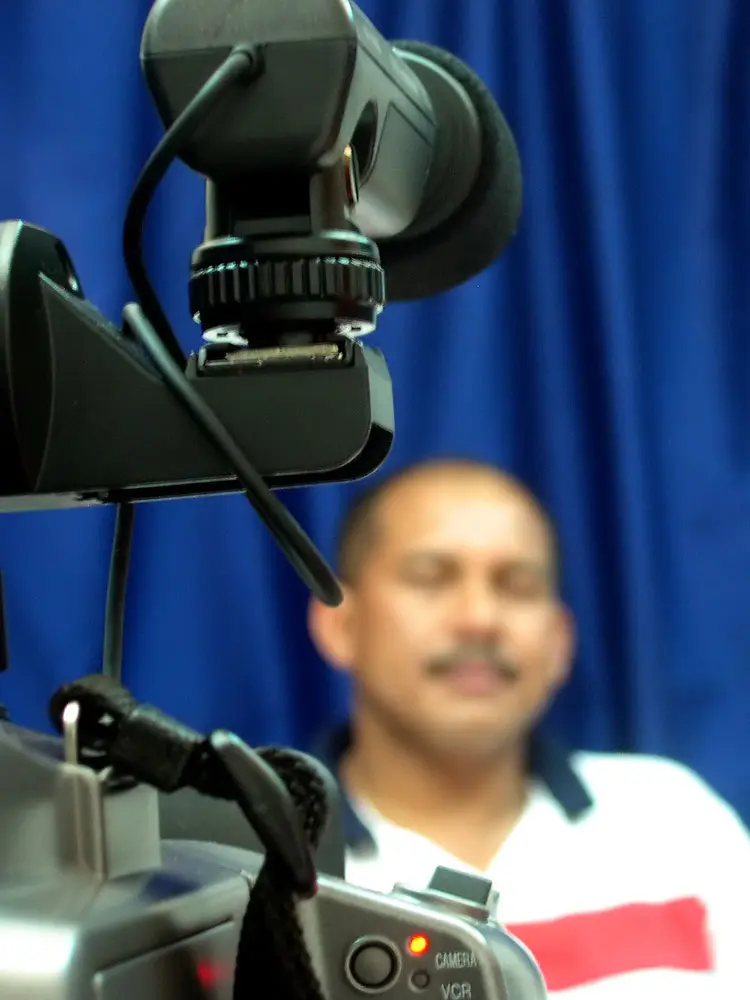The Significance of Legal Video Clip Depositions in Modern Legal Solutions: What You Should Know
Legal video clip depositions have actually become necessary in today's legal landscape. They give a multidimensional sight of witness testimonies that standard transcripts just can not match. By catching both verbal and non-verbal communication, these depositions improve the general understanding of a witness's credibility. The effectiveness of video clip depositions hinges on different elements, including compliance with legal criteria and finest practices. Discovering these aspects exposes their real relevance in modern-day legal solutions
What Are Legal Video Clip Depositions?
Lawful video depositions function as a crucial device in the litigation procedure. They entail recording witness testimonies in a video clip format, capturing both spoken and non-verbal communication. This technique enables lawyers to record the temperament, expressions, and responses of witnesses, offering a richer context for the testimony. Commonly conducted in a controlled setting, these depositions are led by lawyers who ask concerns while a stenotype reporter documents the discussion. The resulting video can be vital for trial preparation, as it makes it possible for lawyers to analyze the trustworthiness of witnesses and fine-tune their methods. In addition, legal video clip depositions can be made use of in different legal contexts, ranging from civil disagreements to criminal situations. The visual and acoustic aspects of video clip depositions enhance the discussion of proof, making it an essential part in the modern legal landscape. Overall, they contribute considerably to the performance and efficiency of legal proceedings.

Benefits of Video Depositions Over Conventional Techniques
Video depositions offer various advantages compared to standard methods of taking witness testaments. One significant benefit is the ability to capture both aesthetic and audio elements, supplying a more detailed document of the witness's declarations. This dual style improves clearness and enables lawyers to reference particular nuances during trial preparation. Furthermore, video clip depositions assist in remote involvement, making it simpler for witnesses that may be unavailable for in-person looks because of geographical restrictions or health and wellness issues.Moreover, video depositions can expedite the overall deposition procedure, minimizing the time and costs connected with travel and logistics. They additionally improve access, as videotaped depositions can be quickly shared amongst lawful teams and referenced at any moment. This benefit adds to much better situation monitoring and preparation. In general, video clip depositions represent a modern-day, efficient approach to collecting witness statements, straightening with the evolving needs of the legal career.
The Duty of Body Language and Tone in Testimonies

In legal video depositions, body language and tone play important roles in conveying a witness's integrity and dependability. Nonverbal signs can supply understandings right into a witness's mood, affecting exactly how their statement is perceived. Recognizing the effect of these aspects is necessary for jurors and lawyers alike when assessing the dependability of a statement.
Nonverbal Communication Insights
While spoken communication is often stressed in lawful testimonies, nonverbal hints such as body movement and tone play a crucial duty in conveying trustworthiness and feeling. Viewers of depositions might keep in mind that a witness's position, motions, and facial expressions can greatly influence understandings of integrity. As an example, constant eye get in touch with may signal self-confidence, while staying clear of gaze can recommend dishonesty or discomfort. Similarly, the tone of voice-- its pace, volume, and pitch-- can impart feelings of sincerity or unpredictability. Attorneys should be attuned to these nonverbal signals, as they typically give critical context that enhances talked words. Comprehending these subtleties can boost the efficiency of depositions and affect the outcome of legal proceedings.
Emotional Tone Influence
The psychological tone conveyed throughout lawful statements greatly impacts exactly how a witness is viewed. Body movement, singing inflections, and faces play vital roles in forming the story of a testimony. A witness showing self-confidence through consistent eye contact and a tranquil tone can impart a feeling of integrity and interaction. Conversely, indications of anxiety, such as fidgeting or an unsteady voice, may bring about apprehension concerning their account. The nuances of emotional expression can affect the interpretation of facts, making it necessary for legal professionals to identify these hints. In video depositions, the auditory and aesthetic parts incorporate, emphasizing the relevance of emotional tone in conveying sincerity and reliability within the legal process.
Trustworthiness and Reliability
A crucial variable in developing credibility and reliability during statements hinges on the witness's body movement and tone of voice. Observers commonly depend on non-verbal signs-- such as eye call, pose, and motions-- to evaluate a witness's genuineness. For example, a witness who maintains eye call and shows open body movement might be viewed as more reliable and straightforward than one who avoids eye contact or shows up shut off. Additionally, tone of voice plays a vital function; a steady, calm tone can strengthen the credibility of the statement, while fluctuations in pitch or quantity may elevate questions. Eventually, the combination of body movement and vocal tone considerably affects how a witness's declarations are received and analyzed in a lawful context.
Ideal Practices for Carrying Out Video Depositions
Performing video depositions needs mindful planning and implementation to ensure a effective and clear presentation of testament. Initially, it is essential to select a peaceful, well-lit location to minimize disturbances and secure optimal video top quality. The equipment should be examined in advancement, consisting of cams, microphones, and illumination, to avoid technological problems throughout the deposition.Next, events entailed must assess the format and treatments ahead of time, making certain that everybody comprehends their duties. The deponent should be informed on the procedure, consisting of how to react plainly and concisely.Additionally, keeping an expert demeanor throughout the session is important. This includes avoiding speaking over one another and verifying that all questions are routed appropriately. It is important to videotape the deposition in a format that enables for easy playback and evaluation, maintaining the stability of the testament for future use.
Legal Considerations and Compliance Issues
Just how do lawful factors to consider and conformity issues impact the efficiency of video clip depositions? Attorneys need to navigate a complicated landscape of guidelines, guaranteeing that video depositions adhere to jurisdictional regulations and requirements. Conformity with regulations worrying personal privacy, approval, and videotaping techniques is important. Getting explicit approval from all parties included is required to look at this website prevent legal repercussions.Additionally, the admissibility of video evidence in court can hinge on compliance with step-by-step needs. Making sure that the devices made use of meets technological standards is also essential, as bad high quality can weaken the deposition's reliability.Moreover, lawyers need to understand any details state regulations that govern video clip depositions, as these can differ greatly. Failing to attend to these considerations can not only endanger the honesty of the deposition but additionally influence the general instance strategy, inevitably impacting the customer's legal end results.
Exactly How Video Clip Depositions Impact Jury Assumption
While video depositions can serve as effective devices in legal process, their influence on jury perception is significant. The acoustic and visual components of video recordings provide jurors with a more extensive understanding of witness attitude, reputation, and emotional feedbacks. This multimedia strategy can boost the jurors' capacity to assess the reliability of statement compared to typical text-based transcripts.Moreover, video depositions permit jurors to observe body movement, tone of voice, and faces, all of which can influence their analysis of the witness's statements. The presence of a witness on screen can humanize them, cultivating empathy and connection, which may sway jurors' point of views. Conversely, a witness that appears undependable or evasive on video clip may cause negative perceptions that affect a court's More about the author choice. Eventually, the vibrant nature of video depositions plays a vital role fit just how jurors interpret evidence and reach their decisions.
The Future of Video Clip Depositions in Legal Technique
As improvements in technology remain to improve the lawful landscape, the future of video depositions is poised for substantial evolution. Developments such as expert system, digital truth, and enhanced video conferencing tools are anticipated to simplify the deposition procedure and boost availability. Attorneys might use AI-driven analytics to assess witness credibility and instance toughness more effectively.Moreover, the integration of digital fact can enable courts to experience immersive simulations of depositions, giving much deeper context and understanding. Furthermore, the trend toward remote depositions is most likely to continue, using better versatility for customers and lawyers alike.As remote job ends up being progressively normalized, video clip depositions will likely come to be basic technique, reducing expenses and time constraints related to typical approaches. Overall, these technological improvements promise to improve the efficiency, effectiveness, and accessibility of video clip depositions in legal technique, eventually changing exactly how lawyers prepare for test.
Often Asked Questions
Just How Much Do Lawful Video Clip Depositions Commonly Cost?

Can Video Clip Depositions Be Used in Any Kind Of Instance?
Video clip depositions can be used in different kinds of situations, including civil, criminal, and household regulation. Their versatility enables attorneys to existing witness statements successfully, adjusting to the details demands of different lawful circumstances.
What Devices Is Needed for a Video Clip Deposition?
To conduct a video clip deposition, important devices consists of a high-grade electronic camera, microphone, lights, and a reputable recording gadget. In addition, a computer system with modifying software application may be necessary for post-production and formatting the final video.
The length of time Does a Typical Video Deposition Last?
A typical video deposition lasts between two to four hours, depending on the complexity of the instance and the variety of concerns presented. Extended sessions might take place, yet breaks are usually included for individual convenience.

Are Video Clip Depositions Admissible in Court?
Video depositions are typically admissible in court, offered they comply with legal standards and guidelines of evidence. Their use boosts clarity and preserves witness testimony, helping in the judicial process throughout hearings and tests. Lawful video depositions have come to be vital in today's lawful landscape. Additionally, legal video clip depositions can be made use of in different lawful contexts, varying from civil conflicts to criminal instances. Furthermore, try this out video depositions facilitate remote involvement, making it easier for witnesses that may be not available for in-person looks due to geographical restrictions or health issues.Moreover, video depositions can quicken the total deposition procedure, lowering the time and expenses associated with traveling and logistics. Making sure that the equipment used fulfills technological requirements is likewise essential, as inadequate high quality can undermine the deposition's reliability.Moreover, attorneys have to be mindful of any type of particular state regulations that regulate video depositions, as these can differ considerably. Additionally, the fad toward remote depositions is likely to continue, using higher flexibility for lawyers and customers alike.As remote work ends up being increasingly stabilized, video depositions will likely end up being basic technique, decreasing expenses and time constraints linked with conventional techniques.